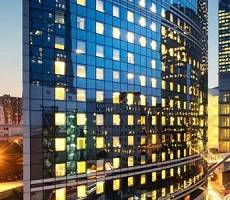February 12, 2016
Unpredictability and office environment are key causes of workplace stress 0
 The two most common factors influencing work related stress levels are unpredictability (26 percent) and workplace environment (21 percent) according to a poll by US jobs site CareerCast.com. The results, based on 834 respondents found that most of the respondents (62 percent) rated their jobs as highly stressful, while just 11 percent felt the amount of stress on the job was low. Other key stressors were deadlines (20 percent) and safety of others (16 percent). Interestingly, few people felt that length of work day/week (7 percent), personal well-being in danger (5 percent), potential for promotion (3 percent) and travel (1 percent) were major job stressors. Any number of factors can contribute to an unpredictable workplace; either the flow of responsibility changes from day-to-day with new tasks added or changed at random intervals or expectations may change. Running a close second is the workplace environment and culture, which includes interactions with bosses, co-workers and clients/customers.
The two most common factors influencing work related stress levels are unpredictability (26 percent) and workplace environment (21 percent) according to a poll by US jobs site CareerCast.com. The results, based on 834 respondents found that most of the respondents (62 percent) rated their jobs as highly stressful, while just 11 percent felt the amount of stress on the job was low. Other key stressors were deadlines (20 percent) and safety of others (16 percent). Interestingly, few people felt that length of work day/week (7 percent), personal well-being in danger (5 percent), potential for promotion (3 percent) and travel (1 percent) were major job stressors. Any number of factors can contribute to an unpredictable workplace; either the flow of responsibility changes from day-to-day with new tasks added or changed at random intervals or expectations may change. Running a close second is the workplace environment and culture, which includes interactions with bosses, co-workers and clients/customers.






































February 3, 2016
HR managers must innovate to stay relevant in the evolving workplace 0
by Sara Bean • Comment, Flexible working, Workplace
More →